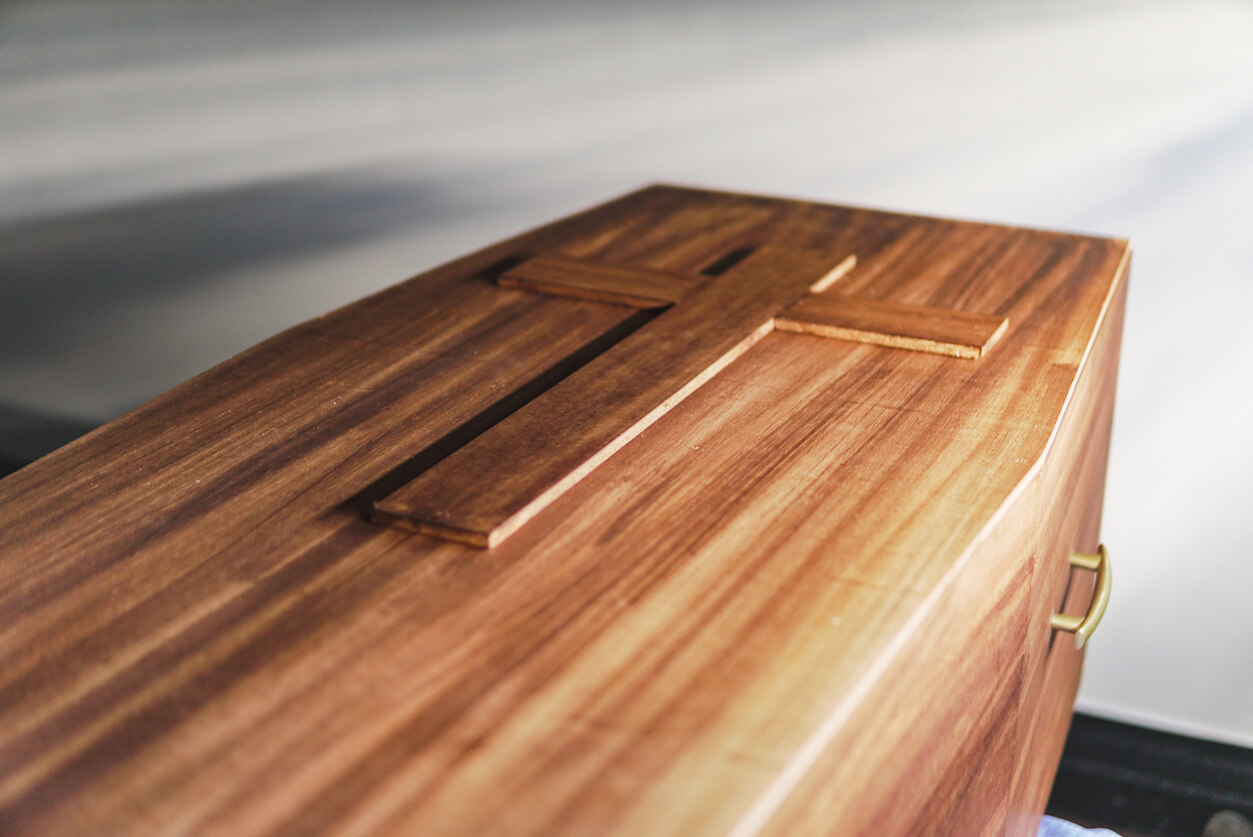You probably know that cremation is the preferred method of disposition for most Americans. However, you may not have an understanding of the process. Before you click away, please understand that we will not be discussing the details of the cremation process. Instead, this will be a simple discussion of the types of cremation and the utilized containers.
Before we discuss cremation caskets, it’s essential that you understand the different types of cremation and funeral arrangements.
Cremation Caskets for Traditional Funeral Services
Some families opt for a traditional funeral service followed by cremation. It’s worth noting that this is typically one of the higher-priced options funeral homes offer.
In this scenario, the body may be embalmed and prepared for viewing. The body will then be placed in a traditional casket (solid wood casket, bronze and copper caskets, metal casket, steel casket, etc.) for the services. Once the funeral is complete, the body is cremated, and the remains are given back to the family.
Most funeral homes allow families to use rental caskets in this scenario. (It’s worth noting that some funeral homes first put the body inside a cremation container (made of sturdy cardboard) before placing the body and cremation casket inside the rental casket.)
If renting a casket doesn’t appeal to your family, some families choose to purchase wooden caskets that can be used during cremation. This type of cremation casket has no metal nails or metal parts. They are sometimes called Jewish caskets, as Orthodox Jews must be buried in fully biodegradable caskets.
This choice may appeal to those who are uncomfortable with renting a casket. However, it’s worth noting that hardwood caskets are rather expensive.
Cremation Caskets for Direct Cremation
Direct cremation is a more straightforward cremation process. In this scenario, the body is removed from the place of death to the crematory. The body is placed inside an alternative container that is included in the price of the cremation. Once the process is complete, the ashes are returned to the family.
As you would expect, direct cremation is typically the least expensive end-of-life service. Because the body isn’t prepared for a formal viewing at a funeral home. Additionally, the family does not have to pay for embalming or an expensive casket. There are fewer transportation expenses to pay for as well.
Contact Philadelphia Cremation Society to Learn More About Direct Cremation
If you are intrigued by the simplicity of direct cremation, reach out to the Philadelphia Cremation Society. If you choose our service, you will not be required to purchase a traditional casket. We will return your loved one’s cremated remains in a sturdy cardboard container.
Even though you will be paying much less for your loved one’s end-of-life services than you would at a typical funeral home, our compassionate staff is available to you any time, day or night. Our service area includes the following Pennsylvania counties: Philadelphia, Delaware, Montgomery, Chester, Bucks, Lehigh, Northampton, Berks County, Luzerne, Lackawanna, Carbon, Wyoming, and Monroe. We also serve Burlington, Camden, Gloucester, Atlantic, Salem, Cumberland, and Cape May in New Jersey.





